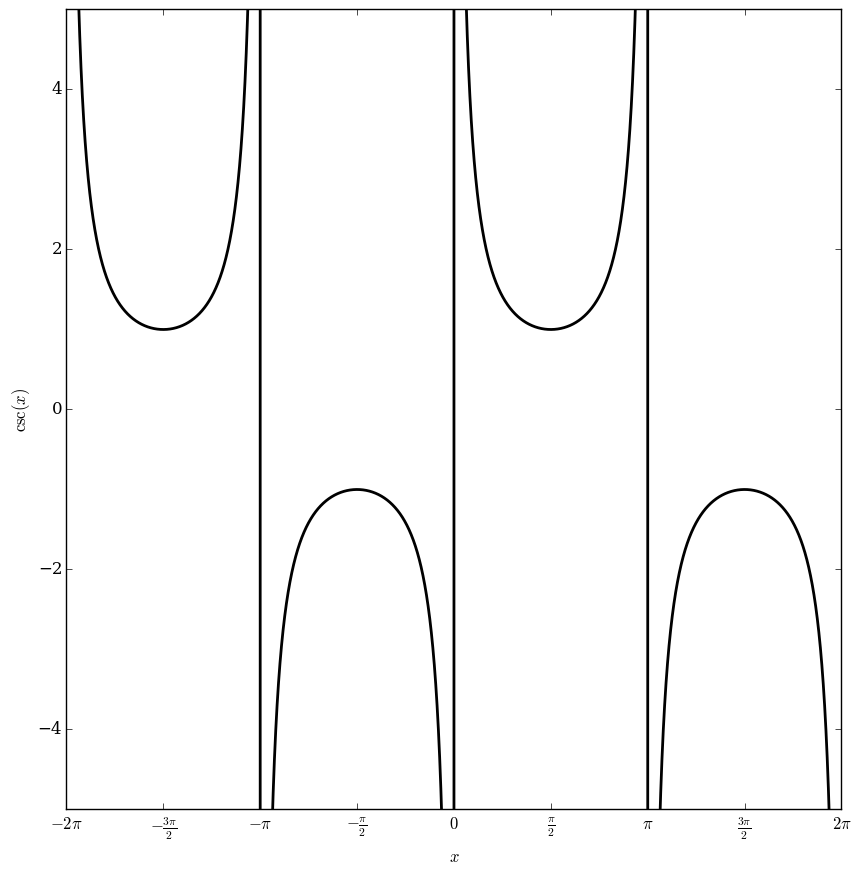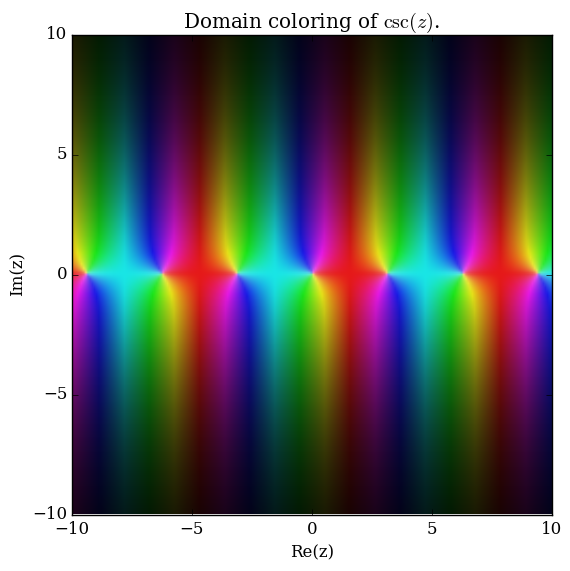Difference between revisions of "Cosecant"
From specialfunctionswiki
(→Properties) |
(→Properties) |
||
| (One intermediate revision by the same user not shown) | |||
| Line 13: | Line 13: | ||
=Properties= | =Properties= | ||
[[Derivative of cosecant]] <br /> | [[Derivative of cosecant]] <br /> | ||
| + | [[Derivative of cotangent]]<br /> | ||
[[Relationship between csch and csc]]<br /> | [[Relationship between csch and csc]]<br /> | ||
[[Relationship between csc, Gudermannian, and coth]] <br /> | [[Relationship between csc, Gudermannian, and coth]] <br /> | ||
[[Relationship between coth, inverse Gudermannian, and csc]]<br /> | [[Relationship between coth, inverse Gudermannian, and csc]]<br /> | ||
| + | [[Derivative of Bessel Y with respect to its order]]<br /> | ||
| + | [[Hankel H (1) in terms of csc and Bessel J]]<br /> | ||
| + | [[Hankel H (2) in terms of csc and Bessel J]]<br /> | ||
=See Also= | =See Also= | ||
| Line 26: | Line 30: | ||
* {{BookReference|Handbook of mathematical functions|1964|Milton Abramowitz|author2=Irene A. Stegun|prev=Tangent|next=Secant}}: 4.3.4 | * {{BookReference|Handbook of mathematical functions|1964|Milton Abramowitz|author2=Irene A. Stegun|prev=Tangent|next=Secant}}: 4.3.4 | ||
| − | + | {{:Trigonometric functions footer}} | |
[[Category:SpecialFunction]] | [[Category:SpecialFunction]] | ||
[[Category:Definition]] | [[Category:Definition]] | ||
Latest revision as of 15:39, 10 July 2017
The cosecant function is defined by $$\csc(z)=\dfrac{1}{\sin(z)},$$ where $\sin$ denotes the sine function.
Domain coloring of $\csc$.
Properties
Derivative of cosecant
Derivative of cotangent
Relationship between csch and csc
Relationship between csc, Gudermannian, and coth
Relationship between coth, inverse Gudermannian, and csc
Derivative of Bessel Y with respect to its order
Hankel H (1) in terms of csc and Bessel J
Hankel H (2) in terms of csc and Bessel J
See Also
References
- 1964: Milton Abramowitz and Irene A. Stegun: Handbook of mathematical functions ... (previous) ... (next): 4.3.4


